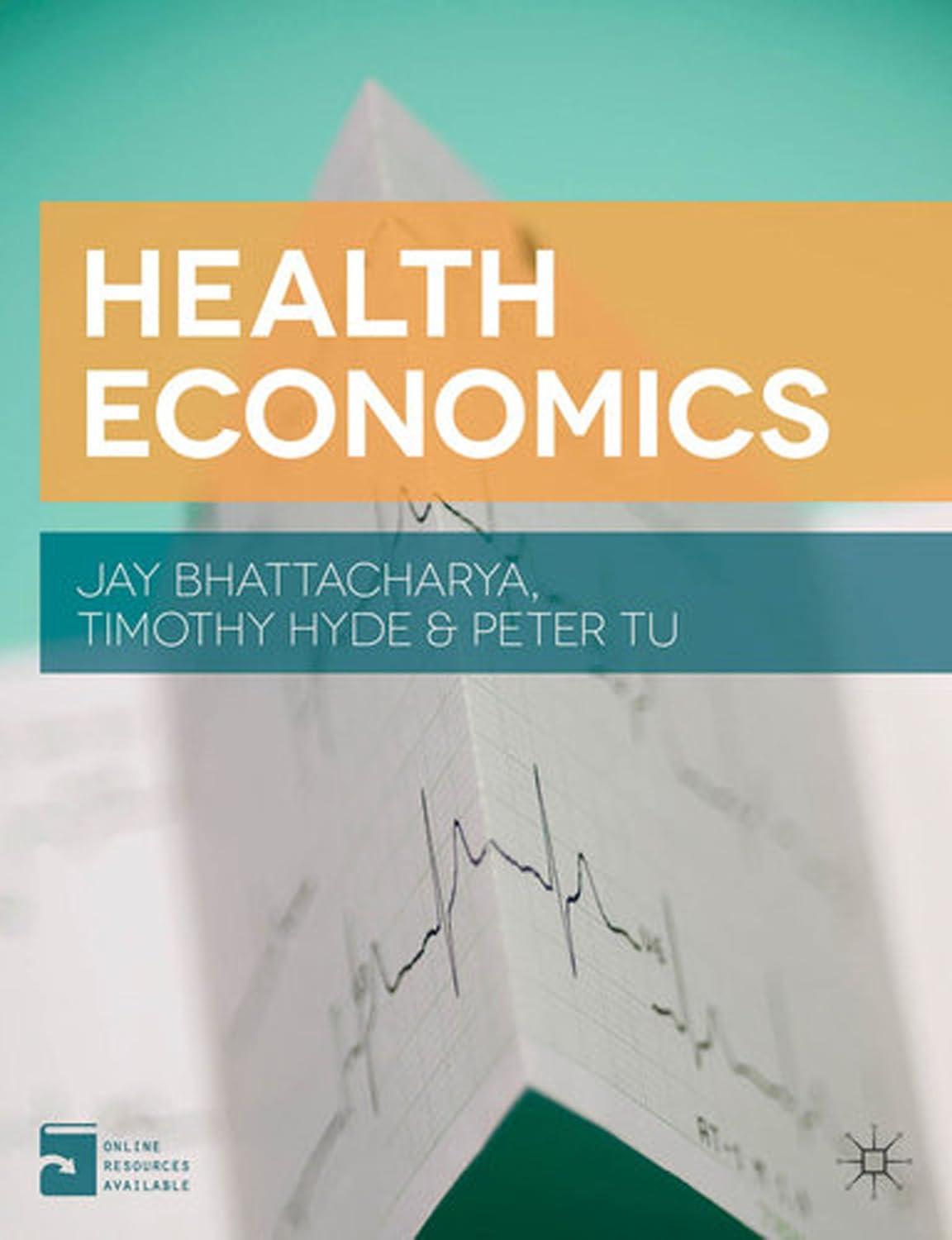Below is an excerpt of the abstract of a recent journal article entitled Do social connections reduce
Question:
Below is an excerpt of the abstract of a recent journal article entitled “Do social connections reduce moral hazard? Evidence from the New York City taxi industry” by C. Kirabo Jackson and Henry Schneider (2011):
We investigate the role of social networks in aligning the incentives of agents in settings with incomplete contracts. We study the New York City taxi industry where taxis are often leased and lessee-drivers have worse driving outcomes [like gas overuse and accidents] than owner-drivers due to a moral hazard associated with incomplete contracts. We find that . . . drivers leasing from members of their country-of-birth community exhibit significantly reduced effects of moral hazard . .
a. Draw an analogy between health insurance and taxi leasing in terms of moral hazard.
In each case, highlight the price distortion, the behavior change due to price sensitivity, the information asymmetry, and the form of the social loss.
b. The researchers find that moral hazard is reduced when lessor and lessee share a country of birth (most lessors and lessees in the NYC taxi industry are immigrants to the US, so participants in the market come from many different countries).
c. The researchers find that the effect seems to be due to social sanctions against drivers with bad outcomes. Does this mechanism operate through price distortions, price sensitivity, or information asymmetries?
Step by Step Answer:






